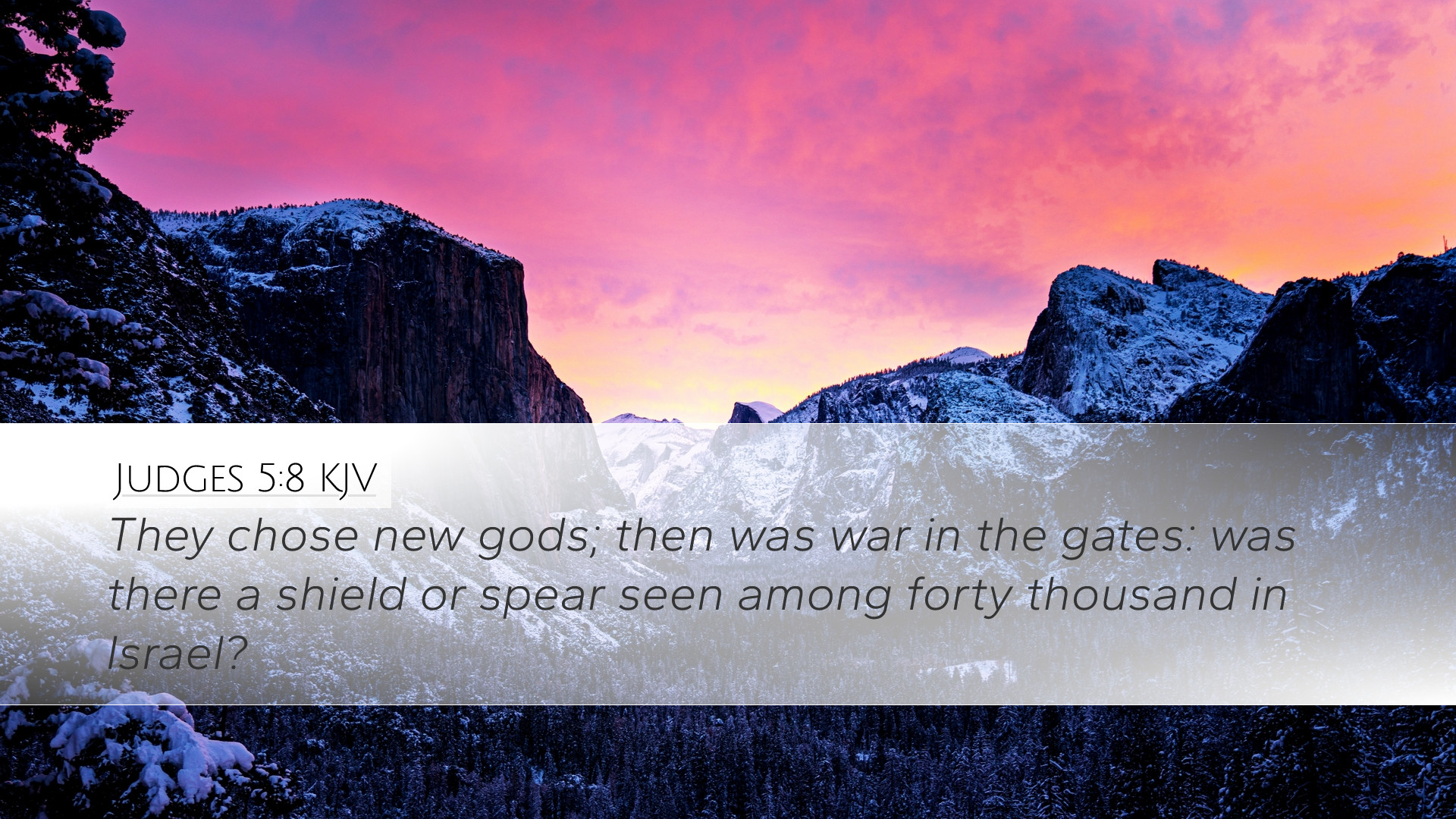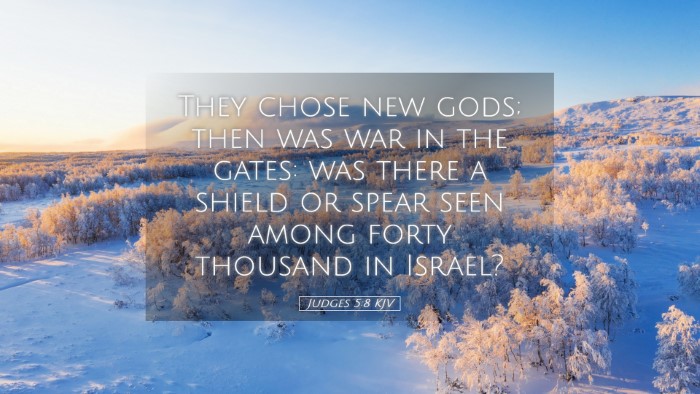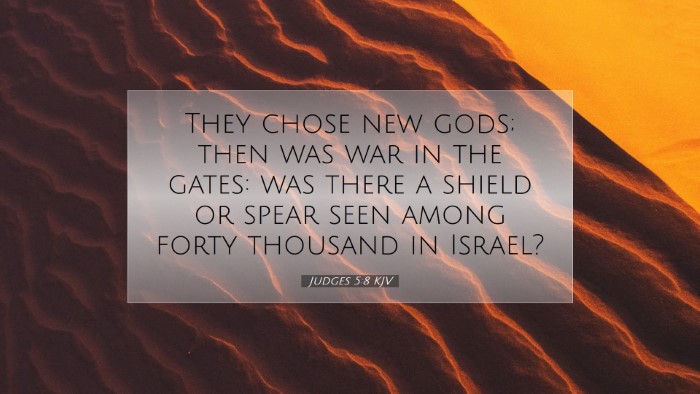Commentary on Judges 5:8
Verse Text: "They chose new gods; then was war in the gates: was there a shield or spear seen among forty thousand in Israel?"
Introduction
The verse from Judges 5:8 provides a critical insight into a period of instability and moral decline in Israel. This commentary synthesizes thoughts from notable public domain commentaries such as Matthew Henry, Albert Barnes, and Adam Clarke to explore the theological and historical implications of this verse.
Historical Context
This verse is part of the Song of Deborah, a poetic reflection on a significant battle that took place when Israel faced oppression under Jabin king of Canaan. The aftermath of this oppression is significant, as it highlights the spiritual failings of Israel during this period.
Analysis of Key Phrases
-
“They chose new gods”
This phrase illustrates a critical turning point for Israel. It indicates a departure from the worship of Yahweh, the God of Israel, to the adoption of foreign deities. Matthew Henry emphasizes that this choice was not simply a passive acceptance but an active decision by the Israelites to forsake their covenant with God. Such shifts in allegiance lead to detrimental effects, both spiritually and socially.
-
“then was war in the gates”
Albert Barnes suggests that war at the gates denotes chaos and conflict arising from their disobedience. The gates were significant as the points of entry and authority in a city. The strife within the gates symbolizes internal breakdown and disorder. The lack of peace reflects the Israelites' fragile state, where external enemies exploit internal vulnerabilities.
-
“was there a shield or spear seen among forty thousand in Israel?”
This rhetorical question highlights a lack of preparedness and strength among the Israelites. Adam Clarke notes that it reveals the despair and demoralization of a people who have turned away from God's protection. While Israel was numerous, they appeared vulnerable and unarmed, demonstrating both a physical and spiritual weakness resulting from their infidelity.
Theological Insights
The transition to new gods reflects a broader theological theme: the consequences of idolatry. It serves as a warning to contemporary believers regarding the subtle dangers of adopting worldly values and practices that contradict divine truth.
Idolatry and Its Consequences
Henry further explains that when a community forsakes God, it invites chaos and conflict. Historical accounts throughout Scripture reveal a consistent pattern: idolatry leads to divine withdrawal, resulting in vulnerability and defeat. The absence of armor among the Israelites symbolizes not only a lack of physical means but also a spiritual disarmament, where faith and trust in God were replaced by reliance on false gods.
God’s Deliverance and Human Response
Despite their shortcomings, the overall narrative of Judges also demonstrates God's faithfulness in delivering his people. This scenario raises questions of human agency and divine sovereignty. The Israelites’ choice to abandon their God contrasts sharply with God's persistent pursuit of His people, as interpreted by Barnes, who underscores that deliverance often follows repentance.
Applications for Modern Readers
This verse serves as a poignant reminder for modern readers, particularly pastors and theologians, to observe the importance of fidelity in faith. Theological reflections from this passage can foster discussions on:
- Cultural Engagement: How do contemporary believers navigate the pressures of adopting ‘new gods’ in a secular world?
- Spiritual Vigilance: The necessity of remaining vigilant against the influences that can lead to spiritual complacency.
- Community Responsibility: The collective nature of faith and the effects of communal disobedience as seen in the narrative of Judges.
Conclusion
Judges 5:8 articulates a fundamental truth about the cycle of sin, judgment, and redemption. The insights drawn from the public domain commentaries encourage a deeper examination of both the historical context of Israel and the modern implications of faith. As this verse illustrates, the shift from faith in God to other deities spells disaster not only for individuals but for the community as a whole. The challenge remains for contemporary believers to maintain a steadfast commitment to their faith, guarding against the allure of ‘new gods’ that threaten to undermine their spiritual foundation.


